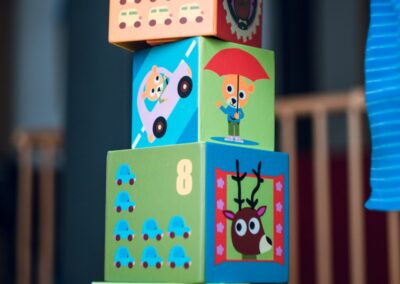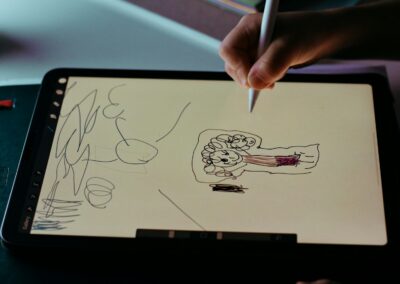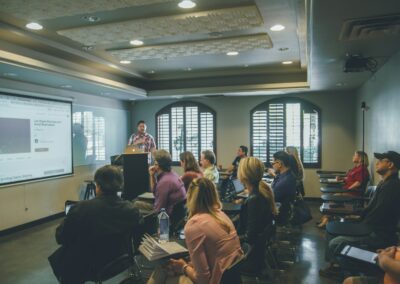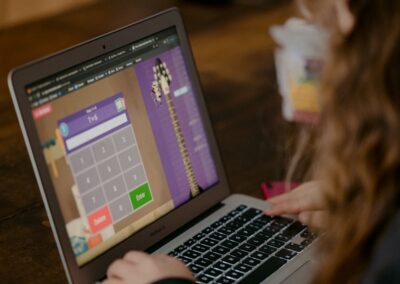Enhancing Skill Development through Gamified Learning
The Rise of Gamified Learning in Vocational Education
In recent years, gamified learning has emerged as a powerful tool in vocational and technical education. This innovative approach leverages game mechanics to create engaging and interactive learning experiences, which are crucial for skill development and job readiness. In regions like Saudi Arabia and the UAE, where there is a strong emphasis on modernizing education to meet the demands of a rapidly evolving job market, gamified learning has proven to be particularly effective.
Vocational and technical education programs in Riyadh are increasingly adopting gamified learning platforms to teach complex skills. For example, students in automotive technology programs might use simulation games to practice diagnosing and repairing virtual vehicles. These games provide a risk-free environment where students can make mistakes and learn from them without the consequences that would occur in a real-world setting. This hands-on, experiential learning approach helps students retain information better and develop practical skills that are directly applicable to their future careers.
Dubai’s educational institutions are also at the forefront of integrating gamified learning into their curricula. Programs in fields such as hospitality, healthcare, and information technology are utilizing educational games to enhance student engagement and motivation. By turning learning into a game, educators can capture the attention of students and make the acquisition of new skills more enjoyable. This approach not only improves retention rates but also ensures that students are better prepared for the workforce upon graduation.
Artificial Intelligence in Gamified Vocational Training
Artificial Intelligence (AI) is playing a transformative role in the development of gamified learning tools for vocational and technical education. AI-powered platforms can personalize the learning experience by adapting the content and difficulty level based on each student’s progress and performance. This ensures that learners receive instruction that is tailored to their individual needs, which is particularly beneficial in a diverse educational landscape.
In Saudi Arabia, AI-driven gamified learning tools are being used in technical education programs to provide real-time feedback and assessments. For instance, students in electrical engineering programs might use AI-powered simulation games to design and troubleshoot circuits. The AI analyzes their actions and provides immediate feedback, helping them understand their mistakes and learn more effectively. This instant feedback loop is critical for mastering technical skills and building confidence in their abilities.
The UAE is also leveraging AI to enhance gamified learning in vocational education. AI algorithms can analyze vast amounts of data to identify patterns and predict future learning outcomes. This predictive capability allows educators to intervene early when students are struggling, providing additional support and resources to ensure their success. Furthermore, AI can facilitate the creation of more sophisticated and realistic simulations, offering students a deeper and more immersive learning experience.
The Metaverse and Virtual Reality in Technical Education
The integration of the Metaverse and virtual reality (VR) into vocational and technical education is another exciting trend. The Metaverse, a collective virtual shared space created by the convergence of virtually enhanced physical reality and persistent virtual environments, offers vast potential for immersive learning experiences. In Riyadh, educational institutions are beginning to explore the use of VR and the Metaverse to create virtual workshops and labs where students can practice their skills in a controlled, virtual environment.
For example, students in construction management programs might use VR simulations to explore building sites, plan projects, and manage resources. These virtual experiences provide a safe and cost-effective way for students to gain practical experience and develop their skills. The immersive nature of VR also enhances engagement and retention, making it an effective tool for technical education.
In Dubai, the Metaverse is being used to create virtual classrooms where students from different parts of the world can collaborate and learn together. This global perspective is invaluable in today’s interconnected world, where technical professionals must be able to work with diverse teams and understand international standards and practices. By using the Metaverse to bring students together in a shared virtual space, educators can foster collaboration, cultural exchange, and a deeper understanding of global industry trends.
Preparing for the Future with Gamified Learning
Executive Coaching and Leadership Development
Executive coaching services are also benefiting from the integration of gamified learning and advanced technologies. In Saudi Arabia and the UAE, executive coaching programs are using gamified platforms to simulate real-world business scenarios, helping leaders practice decision-making and strategic planning in a dynamic and engaging environment. These simulations allow executives to experiment with different strategies and see the consequences of their decisions in a risk-free setting.
Generative AI further enhances these coaching programs by providing personalized feedback and recommendations based on the individual’s performance. For instance, an executive might use a gamified simulation to navigate a complex negotiation or crisis management scenario. The AI analyzes their actions and offers insights on how to improve their leadership skills. This personalized coaching approach helps executives develop the competencies they need to lead their organizations successfully in an increasingly complex and competitive business environment.
Blockchain and Secure Learning Environments
Blockchain technology is revolutionizing the way educational institutions manage and secure student data. In vocational and technical education, blockchain can be used to create immutable records of student achievements and certifications. This ensures that qualifications are verifiable and tamper-proof, which is particularly important in fields where technical skills and certifications are critical.
In Riyadh, educational institutions are implementing blockchain-based systems to manage student records and credentials. These systems provide a secure and transparent way to track student progress and ensure the integrity of their qualifications. This not only enhances the credibility of vocational and technical education programs but also builds trust with employers who rely on these certifications to make hiring decisions.
Dubai is also exploring the use of blockchain to enhance the security and transparency of educational records. Blockchain’s decentralized nature makes it an ideal solution for managing sensitive data, as it reduces the risk of data breaches and ensures that records are accurate and up-to-date. By leveraging blockchain technology, educational institutions in Dubai are setting a new standard for security and reliability in vocational and technical education.
Generative AI and Personalized Learning Paths
Generative AI is revolutionizing the way vocational and technical education programs deliver instruction. By analyzing student data and learning patterns, generative AI can create personalized learning paths that cater to the unique needs of each student. This ensures that learners receive the right level of challenge and support, helping them achieve their full potential.
In Saudi Arabia, generative AI is being used to develop adaptive learning platforms that adjust the content and pace based on the student’s performance. For example, a student in a welding program might use an AI-powered simulation to practice different techniques. The AI analyzes their performance and adjusts the difficulty level to ensure that they are continuously challenged and supported. This personalized approach helps students master technical skills more effectively and prepares them for the demands of the workforce.
Dubai’s educational institutions are also leveraging generative AI to enhance vocational and technical education. AI-driven platforms provide real-time feedback and recommendations, helping students stay on track and achieve their learning goals. By offering a tailored learning experience, generative AI ensures that students are better prepared for the challenges of their chosen careers and more likely to succeed in the job market.
Conclusion
The trends in gamified learning for vocational and technical education are shaping the future of skill development and job readiness. By integrating technologies like AI, blockchain, and the Metaverse, educational institutions in Saudi Arabia and the UAE are creating innovative and effective learning environments. These advancements provide students with personalized, immersive, and secure educational experiences that enhance their skills and prepare them for successful careers.
Furthermore, the application of gamified learning in executive coaching and leadership development is helping leaders in the region develop the competencies they need to drive business success. As Saudi Arabia and the UAE continue to invest in cutting-edge educational technologies, the future of vocational and technical education looks promising, with gamified learning playing a pivotal role in transforming the way we teach and learn.
#GamifiedLearning #VocationalEducation #TechnicalEducation #SkillDevelopment #JobReadiness #SaudiArabia #UAE #Riyadh #Dubai #ArtificialIntelligence #Blockchain #TheMetaverse #ExecutiveCoaching #GenerativeAI #ModernTechnology #BusinessSuccess #LeadershipSkills #ManagementSkills #ProjectManagement























